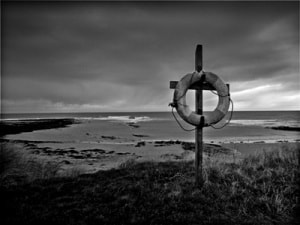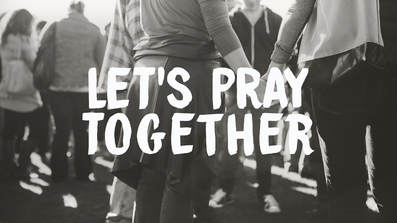 Inside a Texas hospital on the northern tip of Galveston Island, five sailors recover and grieve the loss of their shipmate – 54 year old Roger Stone. Stone was one of two safety officers aboard the 38-foot Cynthia Woods as it embarked on a 600-mile race from Galveston to Veracruz, Mexico. The ships 6 man crew encountered choppy seas at approximately 11:30PM 60-miles into the race. Travis Wright, 20, a student sailor on board stepped from his bunk into a growing puddle of water in the ships cabin. As he alerted the crew and they tried to drop their sails, the Cynthia Woods began to list towards the starboard side, and within seconds had capsized. Two crew members, Ross Busby, 21, and Joseph Savana, 18, and the ships second safety officer, Steve Conway, 55, slid across the deck and into the sea. Below deck, three crew members remained in the upside down cabin. As water rushed into the cabin, Steven Guy, 20, cried out, “How do we get out of here?”, Stone guided Steven through the surging water, pushing him through the hatch to the open sea. Travis Wright tried to pass through the opening, but was pushed back by the rushing water as Stone told him he had to try to get through. Grabbing Wright, Stone pointed him downward towards the opening and shoved him through the hatch. Seconds later, as Wright surfaced just feet from the sinking vessel, he could see his shipmates treading water about ten yards away, where Conway was cradling Steven Guy, who had lost his life vest escaping, in a lifeguard hold. As they pitched in the waves the men stared in astonishment as they looked at the ship laying belly-up beneath the surface of the water with a giant gash where the ships 5,000-pound keel had torn away. The Cynthia Woods was equipped with an emergency radio beacon that would alert the Coast Guard once the boat had sunk passed a depth of 13 feet. The ship was also scheduled to check in via radio to the University marina at 8AM. If the crew did not complete the call, the marina was to alert the Coast Guard. During their 26 hour ordeal, Conway, himself a former Coast Guard Commander, called on his 21-years experience in uniform as he and the four student sailors drifted in 6-foot seas. He told the crew that they would survive if they all remain calm and use their heads. Lashing themselves together, the men fended off hypothermia, biting fish, and Portuguese Man-o-wars with 100-ft of stinging tentacles. 18 hours into their ordeal, several search planes passed overhead, and a Coast Guard cutter sailed far in the distance. At 2AM, more than 26 hours after capsizing, Conway pulsed his flashlight toward the sky, where the crew of a low flying rescue helicopter spotted the flashes in their night vision and circled back for another look. As the crew was rescued, the rescue diver called out that he had been notified of a crew list of six, but counted only five men, and Travis Wright announced that one man was still with the boat. Later that day, six miles from where the crew has been plucked from the sea, a marine salvage diver found the body of Roger Stone floating upside down in the ships cabin. He had drowned after saving the lives of his student sailors Steven guy and Travis Wright. Described as a quiet, square-built man with a captain’s beard, Stone was a life-long sailor with a respect for the sea and it’s power. Hundreds of mourners attended Roger Stone’s funeral, where he was remembered as a hero for saving the lives of his ship mates. I can’t help but think that this was Roger Stone’s purpose, and wonder that if I knew this was my purpose, could I do the same? A life spent as a sailor on the open sea, charged with the safety of a student crew aboard the Cynthia Woods, to be “in the right place, at the right time”, to save the lives of two crew members through the sacrifice of his own life. Question: If it were your life’s purpose to sacrifice your own life so that others could live, could you fulfill your purpose?
0 Comments
 How many times has this happened to you? You walk up to a familiar group of folks at church and exchange cursory greetings. Back-pats, hugs, and hand-shakes aflutter. All so comfortable and familiar until that unexpected moment after these words slip out from your lips by some programmed behavior - "How are you!?!" Before you can withdraw your platitude, regret sets in. Here it comes... you hurled these words in the direction of someone who actually has a real problem. You weren't expecting this. You're not prepared for this. Who responds to such a generic question with an honest-to-goodness problem?! Oh, why hadn't I stayed home in my PJ's and just streamed the service on my phone?, you wonder. This occurs more than any of us would like to admit. It happens every week in churches around the globe. This situation is no respecter of denomination, ethnic background, theology, or geography. As you slink away towards your seat - as far away from the person with a real problem as physically possible - promises are made with good intentions, but are likely never fulfilled. "I'll be praying for you..." "Prayin' for you, man...." "Liftin' ya up!" Too often these are words that easily spill from our lips without regard for the work of the promise made, only to become a promise broken. We've all done this. We're all guilty of it. Instead of ministering in the moment, we open the escape hatch and bail out. Wherever Jesus went, he ministered in the moment. John 5:1-11, illustrates this well: "After this there was a feast of the Jews, and Jesus went up to Jerusalem. Now there is in Jerusalem by the Sheep Gate a pool, in Aramaica called Bethesda, which has five roofed colonnades. In these lay a multitude of invalids—blind, lame, and paralyzed. One man was there who had been an invalid for thirty-eight years. When Jesus saw him lying there and knew that he had already been there a long time, he said to him, “Do you want to be healed?” The sick man answered him, “Sir, I have no one to put me into the pool when the water is stirred up, and while I am going another steps down before me.” Jesus said to him, “Get up, take up your bed, and walk.” And at once the man was healed, and he took up his bed and walked." Jesus ministered in the moment. He came upon someone in need and did what he could do. Now, while neither you nor I may ever heal the blind, lame, or paralyzed persons, we can meet that person where they are in the midst of their struggle and pray for healing in their hurt. We can encourage. We can offer hope. We can let them know they are not alone. The words spoken by Jesus in Matthew 18:20, "For where two or three are gathered in my name, there I am among them," affirm his vow to us, Jesus is divinely present in the midst of those in prayer. When we meet someone who is hurting, what if instead of offering air-kisses and promises as we desperately seek our comfort-zone, we actually minister to their needs in that moment by joining hands and inviting Jesus into the conversation, instead of offering promised prayers and good intentions that you may never follow through on? Prayer is powerful. Prayer is definitely powerful when gathered together with someone in need. As Christians, we are charged to be the hands and feet of Christ in this life. We should use our feet to walk up to the hurting and embrace their hands together in prayer. Challenge: Approach someone at church this week and ask them how you can pray for them. Then do it. Right there with them in the moment. Don't worry. Jesus will be there with you. For more on this topic, visit: https://hutchcraft.com/blogs/ron-hutchcrafts-blogs/purpose/thoughts-and-prayers-are-nice-but |